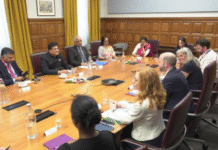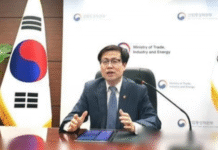New Delhi— As concerns rise among Indian manufacturers over potential disruptions in rare earth supplies following China’s recent export restrictions, the Indian government confirmed Thursday that it is actively engaging with Beijing to maintain stability in the supply chain.
Speaking at a weekly media briefing, Ministry of External Affairs (MEA) spokesperson Randhir Jaiswal said India is in communication with Chinese authorities both in New Delhi and Beijing to ensure trade continuity.
“In early April, the Chinese Ministry of Commerce and the General Administration of Customs announced export controls on certain rare earth-related items,” Jaiswal said. “We are engaging with the Chinese side to ensure predictability in the supply chain for trade, consistent with international practices.”
China is the world’s leading exporter of rare earth magnets, and India remains heavily reliant on Chinese supplies—importing more than 80 percent of its 540 tonnes of magnets in the last fiscal year from the country. The new restrictions, which cover seven rare earth elements and finished magnets, now require export licenses.
The move has prompted Indian industry, particularly the automobile sector, to seek immediate solutions. In the short term, manufacturers and policymakers are focused on building strategic inventories, sourcing from alternate suppliers, and ramping up domestic assembly through Production Linked Incentive (PLI) schemes.
Over the long term, India aims to cut its dependence on Chinese imports by accelerating domestic exploration of rare earth reserves, expanding local production capacity, and investing in recycling infrastructure.
Earlier this month, India and five Central Asian nations expressed mutual interest in jointly exploring rare earth and other critical minerals, signaling a broader effort by New Delhi to diversify its supply sources.
To further support domestic production, the government is also reportedly weighing production-based fiscal incentives for companies involved in rare earth material development. (Source: IANS)








